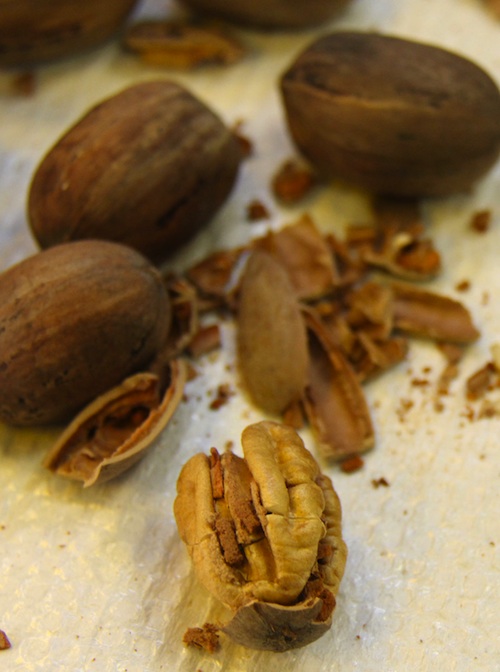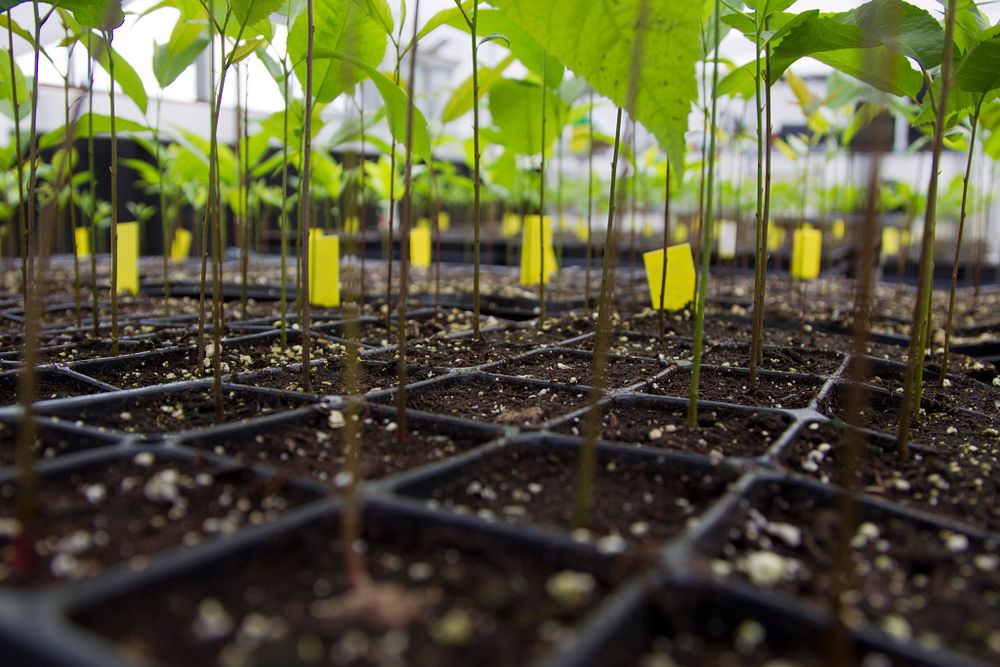Despite a bumper crop of high-quality pecans this year, Georgia’s growers will probably make fewer profits from their harvest. However, consumers can expect to pay about the same price for the tree nuts as they did last fall.
This year’s crop came in early and “looks good,” but farmers are getting less for their harvest than they have the past two years, said Lenny Wells, pecan specialist with UGA Cooperative Extension.
“We have a somewhat unexpectedly good crop that will be very close to the same level as last year’s crop,” he said.
For the past four years, Georgia has led the nation in pecan production. According to the University of Georgia Center for Agribusiness and Economic Development, the crop had a farm gate value of just over $233 million in 2010. Economists estimate this year’s crop will be worth $200 million because of lower per pound prices.
Dry, warm weather: perfect growing condition for pecans
Across the state, this year’s warm, dry weather meant that pecan crops were healthy and about two weeks ahead of schedule, Wells said.
“The interesting thing about this crop was its earliness,” he said. “The warm winter and spring led to an early bud break, early foliage and crop development that continued through the season to crop maturity.”
Warm, spring weather jump-started this year’s crop, and the lack of rainfall in most parts of the growing region kept disease pressure down.
“While the southern tier of counties south of Tifton had decent rain, many counties north of Tifton remained pretty dry,” Wells said. “Some areas across the bottom tier of the state had a significant amount of rainfall in the summer that increased disease pressure and may have affected quality some.”
Those growers in drier areas may have had to worry less about disease, but they had to worry more about irrigating their crop. Seventy to 100 percent of Georgia’s commercial pecan growers irrigate their crop.
“Water, at the right time, does more for a pecan crop than any other management practice,” he said. “(UGA Extension) doesn’t recommend trying to grow them without irrigation. It’s just too much of a gamble with the current cost of production.”
Prize crop of pecans isn’t bringing prize prices
While Georgia’s farmers are seeing more and better quality pecans this year because of their growing practices and the weather, they won’t see an increased profit, Wells said.
“Commercial pecan prices started out okay, but the price has declined somewhat over the last few weeks. This has been a big disappointment for most growers,” he said.
To date, the 'Desirable' cultivar appears to be the only variety holding its value at around $2.50 per pound.
Most other common varieties have fallen off to “anywhere from $1.50 to $2.30 per pound depending on the size and quality. Yard tree prices are considerably lower at $1.00 per pound or less, regardless of variety,” Wells said.
Consumers can expect to pay about the same price they paid last fall, he said, because demand remains high for pecans, particularly in the international market.
“China remains our main export market and continues to drive the price of pecans,” Wells said. “The domestic market has had very little growth, and by some accounts has remained flat or declined over the past few years depending on the source of information. So the export market has truly given new life to the industry.”
Consumers in China seem to prefer larger nut varieties like Desirable, he said.
Pecan industry organizations are promoting pecans in other countries and regions like Canada, Europe, India, and the Middle East. Their goal is to keep the export demand high and not rely solely on one country to maintain that demand, Wells said. “We will need additional acreage to meet the demand if they are successful in this,” he said.
Interest in growing pecans has been on the rise the past year or two. A UGA Extension survey last spring showed an increase of about 6,000 acres of pecan trees planted last winter.
In a separate study funded by the Georgia Pecan Commodity Commission, Wells looked at the effect of growing pecans with less water early in the season when the demand is lowest. With one year of data collected, it appears pecan growers in the Southeast can grow pecans with significantly less water than what is currently recommended.
In this study UGA researchers reduced water use by more than 30 percent over the current recommended irrigation schedule. No difference in yield, quality or water stress on the trees was recorded.
To learn more about other commodities and their farm gate values, visit the Center for Agribusiness and Economic Development website at www.caed.uga.edu








